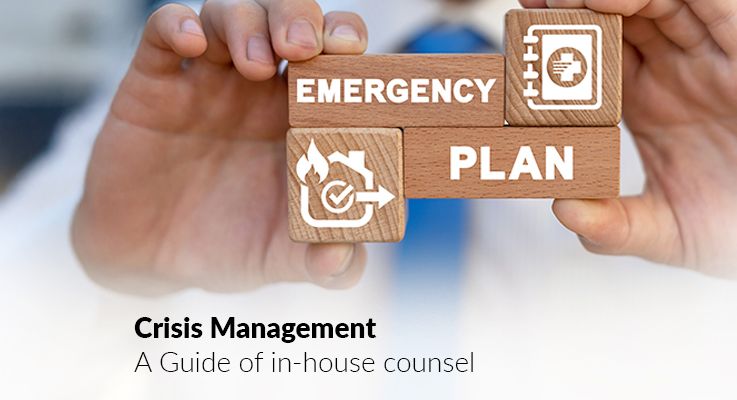As AI becomes more common in legal practice, many professionals are discovering an unexpected challenge: their tools don’t always work together. A typical day for an Australian lawyer might involve switching...
Kiren Chitkara , Legal Writer, Practical Guidance Succession Chloe Silvester , Head of General Practice, Practical Guidance November 2025 marks one of the most significant transformations in Australia...
For decades, LexisNexis ® has defined legal research. But research is just the beginning. Today, we’re transforming the entire legal workflow, evolving from a research provider into a technology partner...
Authored by Seeta Bodke, Head of Product - Pacific, LexisNexis® Legal & Professional We all know the stories: briefs cited fake cases. Submissions with phantom judgments. Entire arguments are built on...
Capital Monitor™ Editorial by Keely Garcia A single week in November 2023 saw four women lose their lives in South Australia amid domestic and family violence, an alarming record across any Australian...

Preparing for a crisis? Natural disasters, power cuts, industrial accidents, stakeholder activism or cybercrime, or simply the loss of a partnership contract are only some of the events that could precipitate a crisis, resulting in damage to your organisation’s operations, its brand and reputation.
How your business responds to a crisis could potentially cause irreparable damage to its operations, brand and reputation.
A poor response could elicit an immediate and savage reaction from an increasingly social media-savvy population, adversely affecting share prices, prompting executive resignations and even business decline.
[FREE DOWNLOAD] Crisis Management Checklist
When a crisis hits, you will be under pressure — pressure to act or to respond, pressure from those to whom you answer internally and potentially from external stakeholders as well.
As a trusted advisor, you may be out of your comfort zone, unsure of your reporting obligations, what to divulge, to whom and when, and the order in which to do things.
Your first instinct may be to try and react immediately in response to the agendas of others or, conversely, to clam up and adopt a legal position.
However, if you get things right, you can seize control of the problem and set and drive a coherent strategy which shapes the future, optimises your position, and manages and limits damage.
What does a crisis involve?
A crisis involves a time of intense difficulty or danger when a difficult or important decision must be made.
Unforeseen and unwelcome events can impact on an organisation at any time. In some cases, you may have some warning (e.g., an industrial dispute or a failure in your supply chain), but not always.
How can you prepare to manage a crisis?
Your company’s legal representatives should be involved in both contingency planning and crisis management, so your company can prepare for and practice responding to a crisis.
Consider preparing contingency plans for possible eventualities such as:
- a natural disaster disrupting operations
- loss of a significant customer or partner, or
- mass customer or stakeholder action.
Also, consider any potential legal or regulatory threats, where you may be expected to lead the crisis team, such as:
- bribery or corrupt practices
- a competition investigation, or
- the discovery of fraud or other criminal activity by one of your senior leaders.
Time spent considering what could happen, how you would react and who would need to be involved will make your reactions faster and more effective if the worst does happen.
What does crisis management involve?
A sudden crisis can put a business under pressure to respond in order to protect its staff, resources and operations. It pressures a business to act, to respond and immediately comply with reporting obligations.
Crisis management involves:
- identifying a crisis
- forming a crisis team
- monitoring the situation
- taking restorative action
- communicating to stakeholders, and
- post-crisis, learning from the experience and adjusting the way you work if necessary.
What should you consider when preparing to respond to a crisis?
In the event of a crisis, it’s likely that your company will be under greater public scrutiny and subject to more media coverage than normal.
Depending on the situation, there may be legal or regulatory implications to consider in terms of what is said and what is reported.
As well as advising on the content of messages from a legal perspective, you should also be monitoring what is being said about your organisation by others, so you can take action if necessary.
You may consider the following questions when advising on, or preparing to, respond to a crisis.
- What is your plan for potential disasters—what could go wrong? Do you know how you would respond? Do you have access to information (contact details for key personnel, for example) in a disaster situation?
- Identifying a crisis—what has happened? What’s the likely impact on your business? What are the financial repercussions? Is this serious enough to warrant specialist communications support?
- Forming the crisis team—who’s involved? What are their skills? What are their roles in the team? Who has been media trained?
- Putting together a mission statement for the crisis team—what’s the team trying to achieve? What are the obstacles? What are the top two or three messages you need to get across?
- Monitoring the situation—who is doing this? Are you monitoring social media, such as Twitter, as well as the press?
- Identifying your audiences—who do you need to talk to? What is the impact of the situation on them? How will you reach them?
- Planning your messages—what are you trying to communicate? How is this different for each of your audiences?
- Drafting your messages—is your language simple and easy to understand? Have you checked your legal position? Are you being open and honest?
- Briefing employees outside the crisis team—what’s your message to them? Have you given them guidelines on how to talk to people outside the company? Have you given them guidelines on talking about the situation on social media?
- Post-crisis—what have you learnt? What did you do well? What would you have done differently? How can you prevent this situation arising again?
The importance of information gathering when a crisis occurs
In the first 12 hours of a crisis, the information available is likely to be patchy and incomplete. Assess quickly what information you have, what is the minimum you need to address the problem effectively and how you will get it.
Do not be tempted to commit too early, or to fill in the gaps with assumptions. Keep an open mind as you start to gather and review the information.
Consider also how you will gather information or evidence comprehensively, safely, and carefully. How you gather evidence is important.
If you can gain control of the problem and develop a coherent strategy which shapes the near-term and long-term future, it is possible to manage and limit the reputational risks that may occur.
Under pressure to provide quality, accurate legal advice fast?
More information on crisis planning can be found inside Practical Guidance In-house Advisor, which offers a wide range of tools designed specifically for corporate in-house lawyers.
Sign up for a FREE TRIAL today to see how LexisNexis® Practical Guidance helps you manage today and anticipate tomorrow.
Access practical online resources for your in-house team by combining In-House Advisor with modules covering key legal and commercial areas. Each module works alongside LexisNexis’ research solutions, providing an efficient gateway to deeper research when needed.





